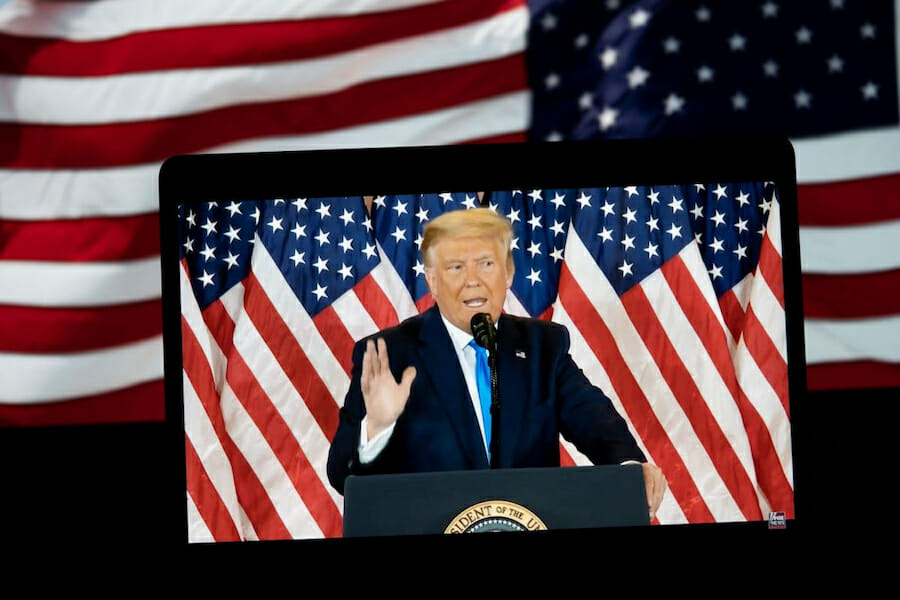
Public Trust During COVID-19: Leadership, Quo Vadis?
With over 72 million cases and 1.6 million deaths, the COVID-19 pandemic has exposed the contrasting strengths and weaknesses in governance and leadership globally. Still, countries like New Zealand and Germany have fared better than others, successfully limiting their number of cases and deaths and maintaining public trust in and compliance with government policies throughout and following the end of lockdown periods. On the other hand, countries with a more sceptical public have suffered, such as the United States and the United Kingdom. This begs the following question: what are the leaders of countries in the former set doing that the latter set is not?
Undoubtedly, the pandemic’s resolution is particularly conditional on the behaviour and compliance of individuals, which necessitates public trust in political institutions for policies intended to combat its spread to be functionally implemented. What is also clear to see is that this trust and its impact on policy implementation are dependent on the behaviour of particularly leaders. In times of crisis, people turn to their governments for leadership and hope. Depending on the exact actions of leaders, public trust levels vary. Accordingly, those who trust their governments are more likely to follow the rules imposed during lockdown and other government guidance. Successful leaders have demonstrated the following characteristics: decisiveness; transparency; cooperativity; and solidarity.
Decisiveness
New Zealand’s Prime Minister Jacinda Ardern offers exemplary leadership in efforts to combat the COVID-19 pandemic and has been praised for her decisive action, alongside Germany’s Angela Merkel. Both countries’ responses have been rapid, strong, and cohesive. This is in contrast to the U.S., and the UK. 81% of respondents surveyed in the UK and 74% in the U.S. mentioned that their governments should have acted faster in the fight against the spread of coronavirus. Levels of trust in and compliance with government policies in the United Kingdom were negatively affected by everchanging and contradictory policies. The UK government has been criticised for changing policies often (e.g. from “stay at home” to “stay alert”), leaving the public confused about which rules still applied after changes had been made.
Living in London, I can attest to this, having been questioned by several people about whether they could engage in certain activities after certain policy adjustments had been made. Similarly, in the U.S., guidance, and policies vary between the federal and local levels, leading to a disparity in trust levels – at the federal level, there has been a decline in public trust, while trust has grown in local governments, albeit still wavering.
Countries’ publics want certainty surrounding their leaders’ abilities to rapidly and effectively respond to public health crises. Leaders must keep in mind that citizens often want priority to be given to health issues over economic concerns. Therefore, there should be no hesitancy to implement necessary policies or offer guidance.
Transparency
In order to maintain and gain public trust, and ensure compliance with government policies, leaders must be transparent in their communications with the public. This also includes transparency in regards to mistakes made by the government.
The UK government’s failure to be transparent during the Dominic Cummings scandal, in which Prime Minister Boris Johnson’s chief adviser at the time was accused of breaking lockdown rules, led to a significant and rapid decline in public trust and support of the government and its policies. There was no sense of accountability or responsibility to the people. This episode further serves to reminds us that politicians need to hold their own to account, having consequences for those that break rules or disregard advice in the same manner as would happen for everyday citizens. Countries cannot reasonably expect the public to act in line with their guidance if officials fail to do so.
It is crucial that messages from leaders are conveyed with clarity, accuracy, and transparency, in the same way as Prime Minister Ardern’s early national address: “I understand that all of this rapid change creates anxiety and uncertainty. Especially when it means changing how we live. That’s why today I am going to set out for you as clearly as possible, what you can expect as we continue to fight the virus together.”
Prime Minister Ardern also continued to be clear and transparent by consistently echoing the familiar four-level alert system and delivering regular public addresses. Citizens are more likely to trust their leaders who are direct and transparent. This in turn makes them more likely to comply with lockdown and health policies.
Cooperativity
Leaders of successful countries have demonstrated a willingness to listen to relevant experts and make decisions that are guided by scientific advice and evidence. For instance, in New Zealand, there has been an impressive collective effort on the part of both the incumbent government, opposition politicians, and public health institutions. This willingness creates a platform for building trust.
On the other hand, in countries like the U.S., a lack of collaboration is one of the key factors for failure in handling the pandemic. President Donald Trump and the scientific community offer conflicting messaging, resulting in a loss of trust in both the government and scientific experts, and a divided and uncertain public. Even countries that have advantages over their neighbours, including universal health coverage, large community-based primary care delivery systems, and experience responding to other health crises, have had control over the pandemic disrupted due to poor leadership, such as Brazil where President Jair Bolsonaro constantly attacked scientists and public health experts.
Solidarity
While some leaders might argue that it is necessary to remain rational and dispassionate, the case of Prime Minister Ardern suggests an opposite approach using empathy is more effective. New Zealand’s government has been both deliberate and persistent in encouraging the public to “unite against COVID-19.” This fostered solidarity and a sense of a shared mission amongst the public, pressing them to comply with policies not just for themselves, but for the larger community. It is easier for the public to trust an empathetic leader, demonstrated by New Zealand’s dramatic reduction of the outbreak’s severity.
At the other end of the spectrum lies President Trump, who has done little more than acknowledge the struggles brought on by COVID-19. He has also neglected to encourage unity and a sense of collectiveness amongst the public, even refusing to condemn the actions of those rallying against necessary restrictions and stating that “there’s death and there’s problems in staying at home too…they’re suffering.” Despite the deaths of hundreds of thousands of Americans, his messages remained the same – “I learned so much about coronavirus…don’t let it dominate you. Don’t be afraid of it” – lacking words of unity, empathy, or hope.
An empathetic approach underlines the importance of a leadership response in which efforts engage the community in facing a complex collective problem. Leadership is strengthened by references to the big picture as an anchor for meaning, rather than compartmentalization or the emphasis of statistics alone.
Moving Forward
It is necessary for leaders to heed the lessons offered by their counterparts during the challenges of the COVID-19 pandemic so that they may better react to inevitable future crises, whether health-related or non-health-related in nature. Leadership has undoubtedly been the most influential factor in maintaining public trust and ensuring public compliance with necessary public policies and guidelines intended to combat the spread of COVID-19. If leaders are able to demonstrate decisiveness, transparency, cooperativity, and solidarity to their publics, the fight against COVID-19 and future crises would be facilitated.

